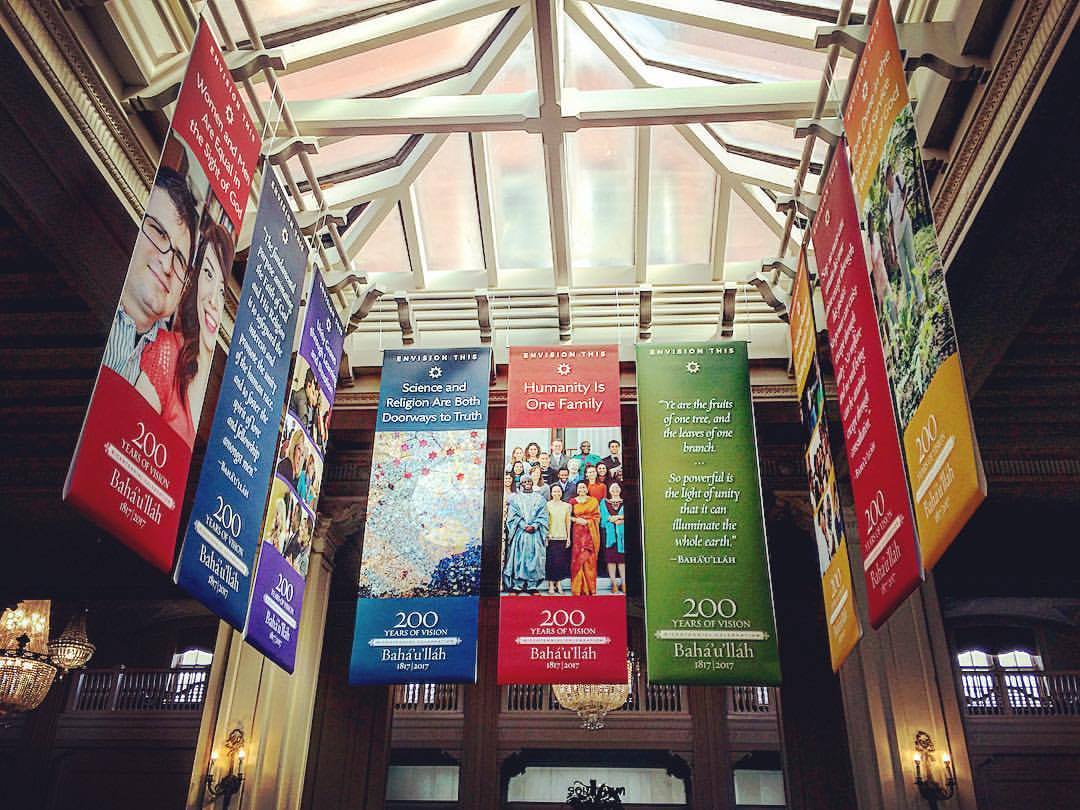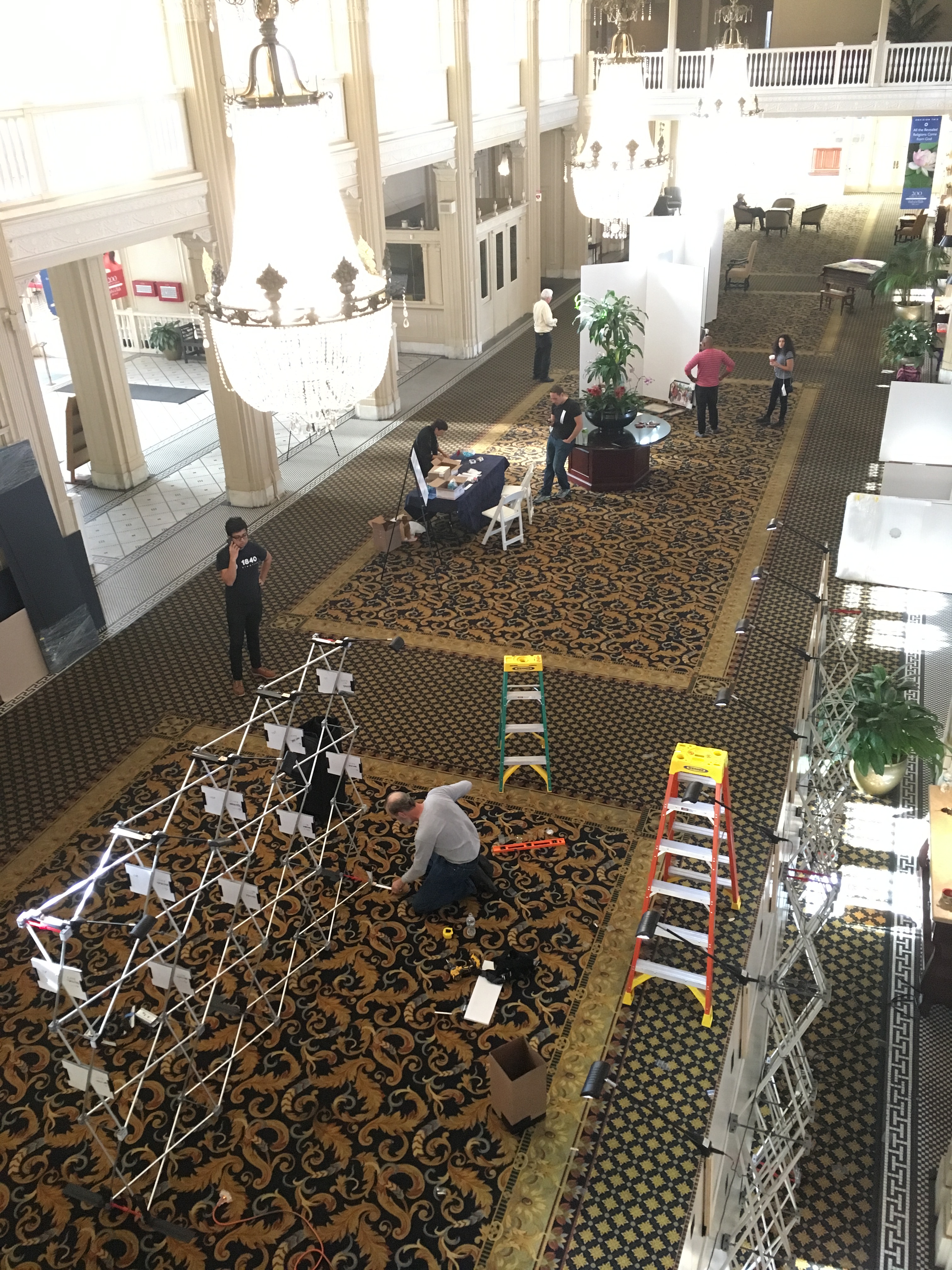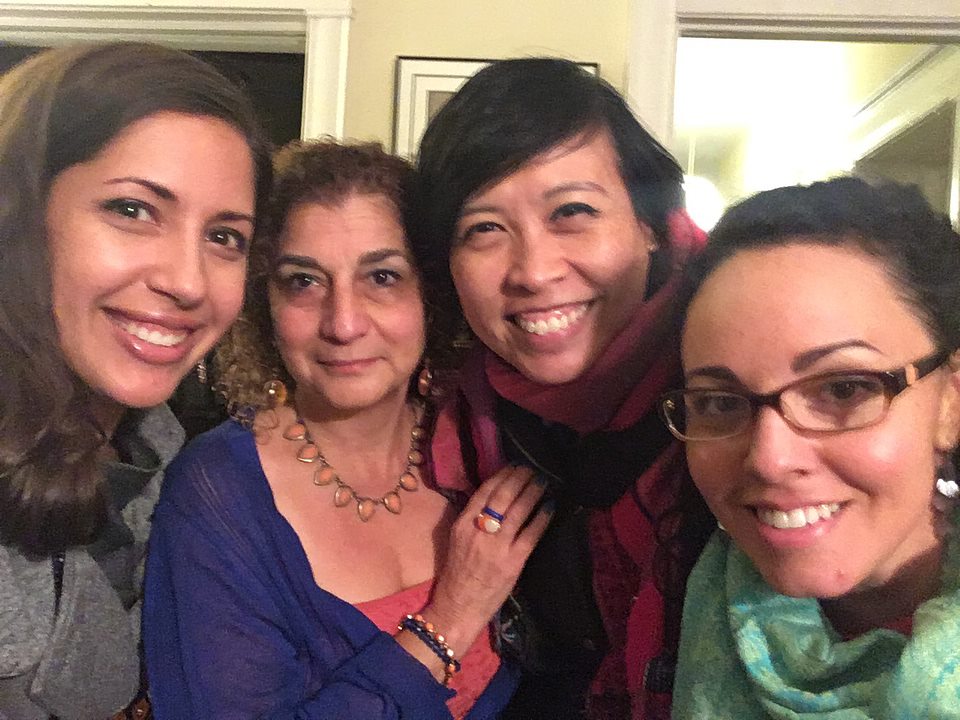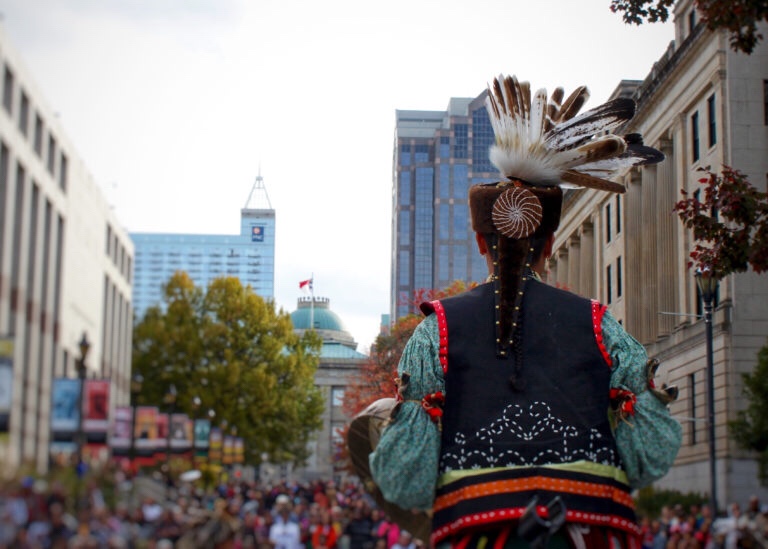“We wish to address some additional words to those of you in whose surroundings marked progress is yet to occur and who long for change. Have hope. It will not always be so. Is not the history of our Faith…
Category: Baha’i
The Bicentenary Event We started at 5 pm on October 21 with a special reception for our friends and partners in the wider community. At 6 pm the doors opened for everyone, and people were greeted with a chocolate in…
Event Day setup for the Chicago Bicentenary event In part 1 of this series I highlighted a little bit about the planning process for the Bicentenary. Now, I will review the actual setup of the event. We arrived at the…
The Planning Process for the Chicago Bicentenary event So there is this funny thing that happens in my brain and heart when I get asked to serve the Faith by planning events. Since I am a certified meeting planner in…
Today was the last day of our family vacation, so there has been no time to write. However, there is a new post for the month of Qawl (Speech) over at Nineteen Months, and you should check it out and…
I have been spending this past week with family, and during one of our family devotion times this quotation from ‘Abdu’l-Baha was read and I wasn’t sure that I ever really heard it before. Which is hard to believe but…
I am ending this series (Part 1, Part 2) with a few reference documents that I found very helpful over the years. There are many Baha’is that may not even know about these documents. I included the description from the…
In part 1 of this series I shared some of my favorite biographies/autobiographies about Baha’is. This next list is books that are more introductory or history of the Faith. Part 3 is here. God Speaks Again by Kenneth E. Bowers…
I have always loved to read. I was blessed with parents who read to me a lot as a child, and who acted as though reading an entire adult-level book in one day was a totally normal activity. There are…
It is really hard to write blog posts while on vacation with family. So for this last part of the Feast posts (1, 2, and 3) I will just post a few final quotations. I wasn’t super organized about these…
In parts 1 and 2 of the series, I reviewed the importance of Feast and the times and locations of Feast, and now to look at the guidance about the structure of Feast. “This institution, established by BahaÌ’u’llaÌh, has been…
In part 1 of this series, I contemplated the importance of Feast. Now, what are the guidelines on where should it be held? “The matter of where the Nineteen Day Feasts should be held is certainly one for the Spiritual…
I think this is going to be a longer and more thoroughly researched post at some point, but I’ve been wanting to record these quotations somewhere for a while, because I spend a lot of time thinking about Feast, how…
I live about one mile from the Lincoln Park Zoo, one of the last free zoos in America. On a summer evening, we may ride our bikes there, stroll in the gardens, or look at the animals. It is a…
Another of the discoveries from my time at the Baha’i National Center (I think?). This one is something that I actually own. It is the 1929 edition of a book originally published in 1902, and was a standard introductory book…
When I was a child, I remember curling up under a blanket or even pulling a rug over myself during long meetings, or Feast, or any activity in which adults were talking and I stayed in the room. I remember…
when I was a child this was second home. I knew that I was safe here that I could express myself even though I was also tested. when I became older we used to sing in the dark and use…
When I lived in Wilmette, I served on the Local Spiritual Assembly for a few years and also served as the Wilmette Archivist. This title was more of an honorary acknowledgement of my natural interest in old things and my…
When I was serving at the Baha’i World Center in Israel from 2006-2008, I needed to leave the country to renew my visa, and I was also due for a vacation. I didn’t have much money, so I decided to…
Another of the treasures that I found in my work at the US Baha’i National Center is the discovery of copies of maps that were probably created in the 1950s. This one is a map of the travels of the…
Have you ever noticed the pile of papers after Baha’i Feast, or a reflection gathering? We want to make sure we have enough copies of the Feast letter, or the Treasurer’s report, or whatever documents we need to share or…
Back when I worked at the Baha’i National Center in 2012, I found this series of photos in a stack of items that were being given away. I decided to scan them in and post them, but then I never…
Back when I worked at the Baha’i National Center in 2012, I found this series of photos in a stack of items that were being given away. I decided to scan them in and post them, but then I never…
Back when I worked at the Baha’i National Center in 2012, I found this series of photos in a stack of items that were being given away. I decided to scan them in and post them, but then I never…
Some of my Baha’i internet friends started this initiative to blog each day in November and I thought it was a great way to get back into something that I used to do quite regularly. I’ve made lifelong friendships through…
As I alluded to in my post from yesterday, Nineteen Months has been a continuous project for nearly 8 years. I strongly advise you to peruse past photos and articles. This month has some beautiful photos from Uganda, the USA,…
I post about Nineteen Months quite a bit on my social media channels, but rarely do I actually explain my involvement in it and the amount of time it takes in my life. It is something that I never expected…
I have lived in Chicago for the majority of my life. We moved here when I was 8 years ago because my parents wanted to live near the House of Worship and my dad was offered a job in the…
I can’t express how excited I am about working with the Baha’i Publishing Trust to create a wall calendar that is now for sale on their website. Caitlin Castelaz, my co-editor, and I worked with our photographers to submit photos…
Over at Nineteen Months (the site that I founded and now run with my friend Caitlin), we had 19 day project of words from various authors about the Baha’i Fast, and Caitlin organized it all. She put it together in…




